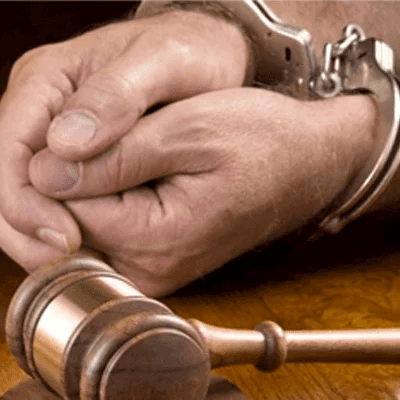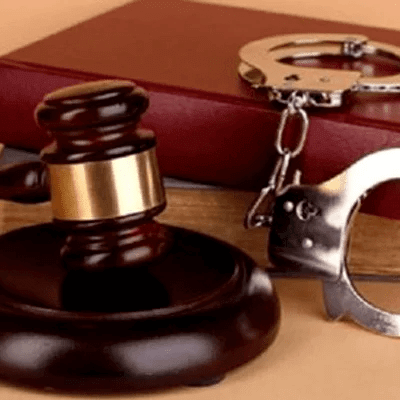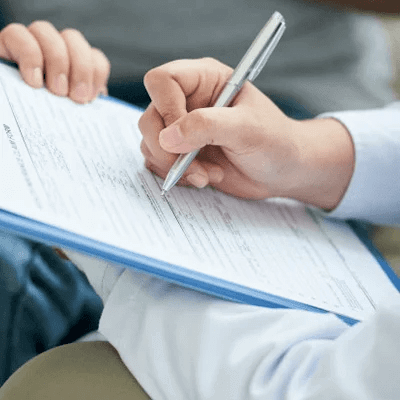Criminal Lawyers in Chennai
Criminal law deals with crimes, including traitors and wrong actions. Criminal law is controlled by three acts they are The Indian Penal Code (IPC), 1960, The Indian Evidence Act, 1872, and The Code Of Criminal Procedure (Cr. P.C), 1973. This law is to protect the citizens from criminals who would impose physical grief on others or take their worldly goods. The primary purpose of this branch of law is to protect the people's liberty and safeguard life and maintain peace within the society at large.
Visit Lawyers plays a significant role in all-legal laws. It always has a positive end with all the cases with happy clients. It gives the best service to the people at an affordable price with a success percentage.
Indian Penal Code (IPC)It is the primary penal law of India. It applies to all offenses, except as may be provided under any other law in India, and it has 576 sections in the Indian Penal Code.
Indian Evidence Act (IEA)It is the detailed treaty on the law of “evidence,” which can be tendered in producing the evidence in the trial. It deals with judicial presumptions, scientific evidence, and expert. It has eleven chapters and 167 sections which came into force on 1 September 1972.
Code of Criminal Procedure (Cr.P.C)It is a comprehensive and complete procedural law for conducting a criminal proceeding in India. It includes examining witnesses, interrogation of accused, arrest, procedures to be adopted by police and courts, bails, method of conviction, safeguards, and the rights of the accused of a fair trial.
Steps to apply for criminal cases
1. Investigation
2. Arrest
3. Charges
4. Initial appearance
5. Preliminary hearing
6. Indictment
7. Arraignment
8. Trial
9. Sentencing
10. Appeal
In this period, they gather the evidence to find the person who is the primary victim of the crime. They investigate the crime and search for any eyewitness people about the crime and search for all the evidence.
ArrestIt is the second stage in criminal law in which an individual incriminate for the crime is taken into the custody of the police. If the police officer witnesses the offense, then the officer can take the individual into custody. In many other cases, the officer arrests according to the arrest warrant issued by a higher authority like the judge or a grand jury.
ChargesAfter arrest, the individual accused of the crime is held. The law enforcement officials
compile a written report detailing the alleged offense when it is not already completed.
The
report contains
General evidence about the circumstance that
led to the supposed crime
The statement provided by the Authenticated
witnesses
Complete information about the crime itself.
With this information and report in hand, the accomplishment aims to determine whether
an
actual crime has been committed or is any chance to believe the person in custody is
guilty
of the offense. At this stage, the prosecution also determines the type and severity of
the
charges filed against the individual.
The case will be dismissed by the judges when they have not been produced enough evidence. They also decide whether there is enough evidence to grasp the suspect for further criminal processing.
Preliminary hearingAt this stage, judges decide whether their criminal committed the crime or not.
Indictment Document of formal charging or paperwork is presented in court. ArraignmentIn the defendant's presence, the criminal charging document is read in a formal way to inform them of the charges against the defendant. Judge plea of innocent or guilty.
TrialIt a formal review of evidence by the honorable judge in criminal cases to decide about the guilt.
SentencingSentencing is performed by a judge only when the jury finds the defendant guilty. The primary goals of sentencing are deterrence, rehabilitation, punishment, and incapacitation. According to the severity of the crime, the judge may inflict jail or prison time fines.
AppealIt is a process by which the judgment/order of a sub-court is challenged before its High Court. The person who has been part of the case has the right to file the appeal before the subordinate court. The person who is filing the request is known as the appellant, and the concerned court is known as the appellate court. Visit Lawyers will make these steps with full-fledged efforts in order to give justice to our clients.
Why Visit Lawyers is best for legal help?
The criminal prosecution process is much more complex. The person charged with a crime at every stage so need a clear head.
Criminal lawyer at Visit Lawyers undergoes many successful civil and criminal cases. Thus, we keep our lawyer up-to-date with the latest law and information. They have a very much strong base, highly experienced with all the cases. Visit Lawyers provides service to all aspects of law under criminal law and is available in all major cities in India.





